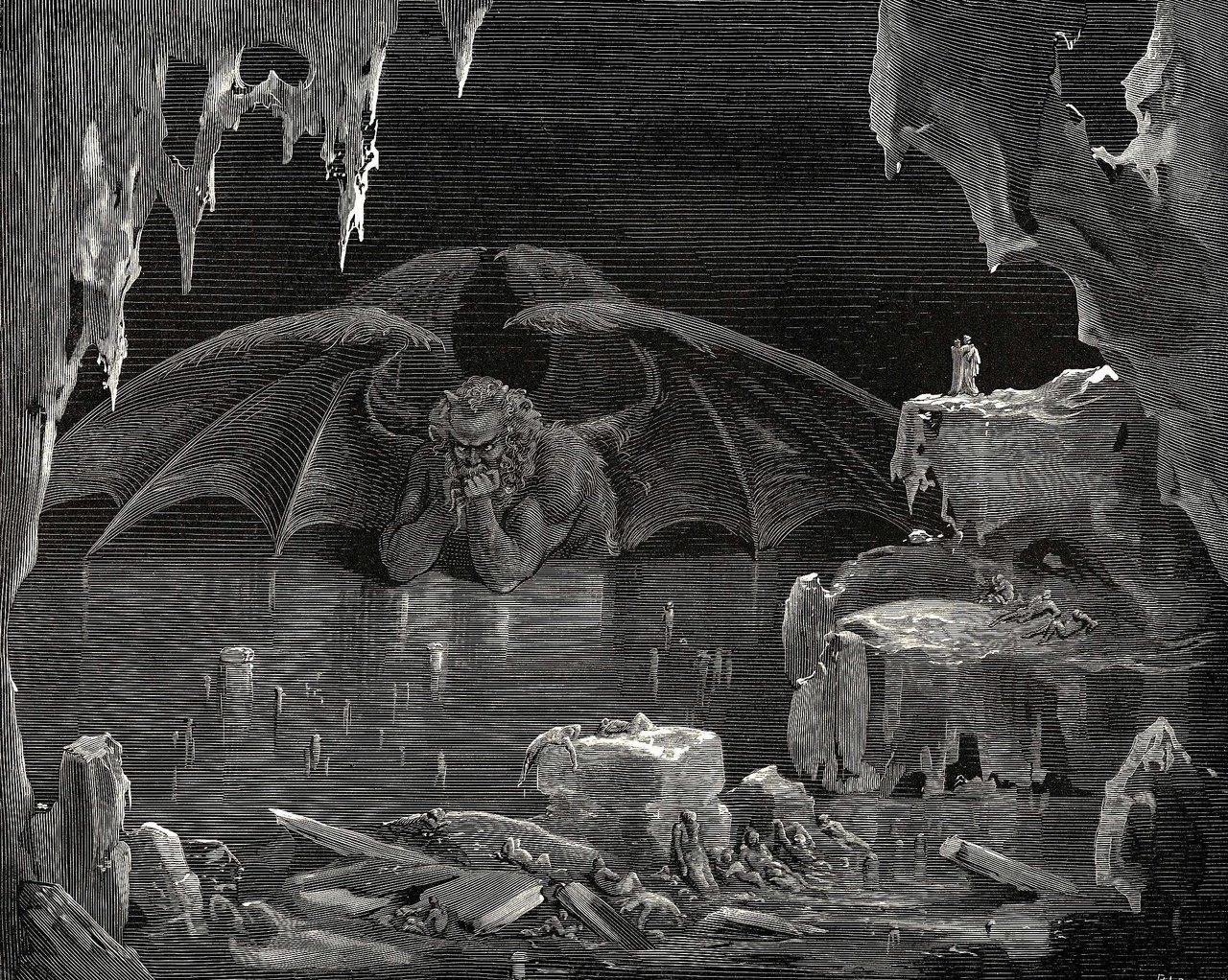Dear Misfits,
We remain embarked on the exciting literary journey of Dante’s Divine Comedy. Last month, we concluded our descent into Hell by reading and discussing the final 17 Cantos of Cantica I of the Divine Comedy. Our discussion of the nether regions of hell was particularly illuminating. We found ample illustration of the sins described there; virtually all of the sins described by Dante are now routinely reflected in our modern (post modern) lives. In fact, we concluded that you can see all of them each evening on our television screens.
When we accompanied Dante and Virgil into the final depths of Hell, we finally meet Satan. Dante’s image of Satan is arresting....He shows Satan with three faces symbolizing the perversion of the Holy Trinity. Dante concludes that Satan is as ugly as he was once beautiful, recalling his original incarnation as an angel. However, he no longer has his transcendent Angelic powers. In Hell, Dante depicts him as dumb and roaring, trapped in ice, enduring an endless punishment for his sins. Dante describes the ultimate horror and punishment of hell as not a burning damnation but the punishment of extreme, unremitting coldness. Satan and all of the sinners in the final circle of Hell (called Judecca after Judas Iscariot) are permanently frozen in ice, locked in the ultimate sin of their coldness to God and their fellow man.
This month, we begin our journey towards God as we leave Hell and progress upwards through Purgatory. Our journey upward through Purgatory occurs during June (Cantos 1-16) and July (Cantos 17-33). Finally, we will enter Paradise in August and finish in September when we triumphantly conclude our literary journey.
As a final note, it is a true pleasure to read The Divine Comedy with you. I especially appreciate the insights each of you contribute to our discussion of this remarkable Catholic literary classic.
Misfit Buzz
Share |

_-_Dante_And_Virgil_In_Hell_(1850).jpg/482px-William-Adolphe_Bouguereau_(1825-1905)_-_Dante_And_Virgil_In_Hell_(1850).jpg)